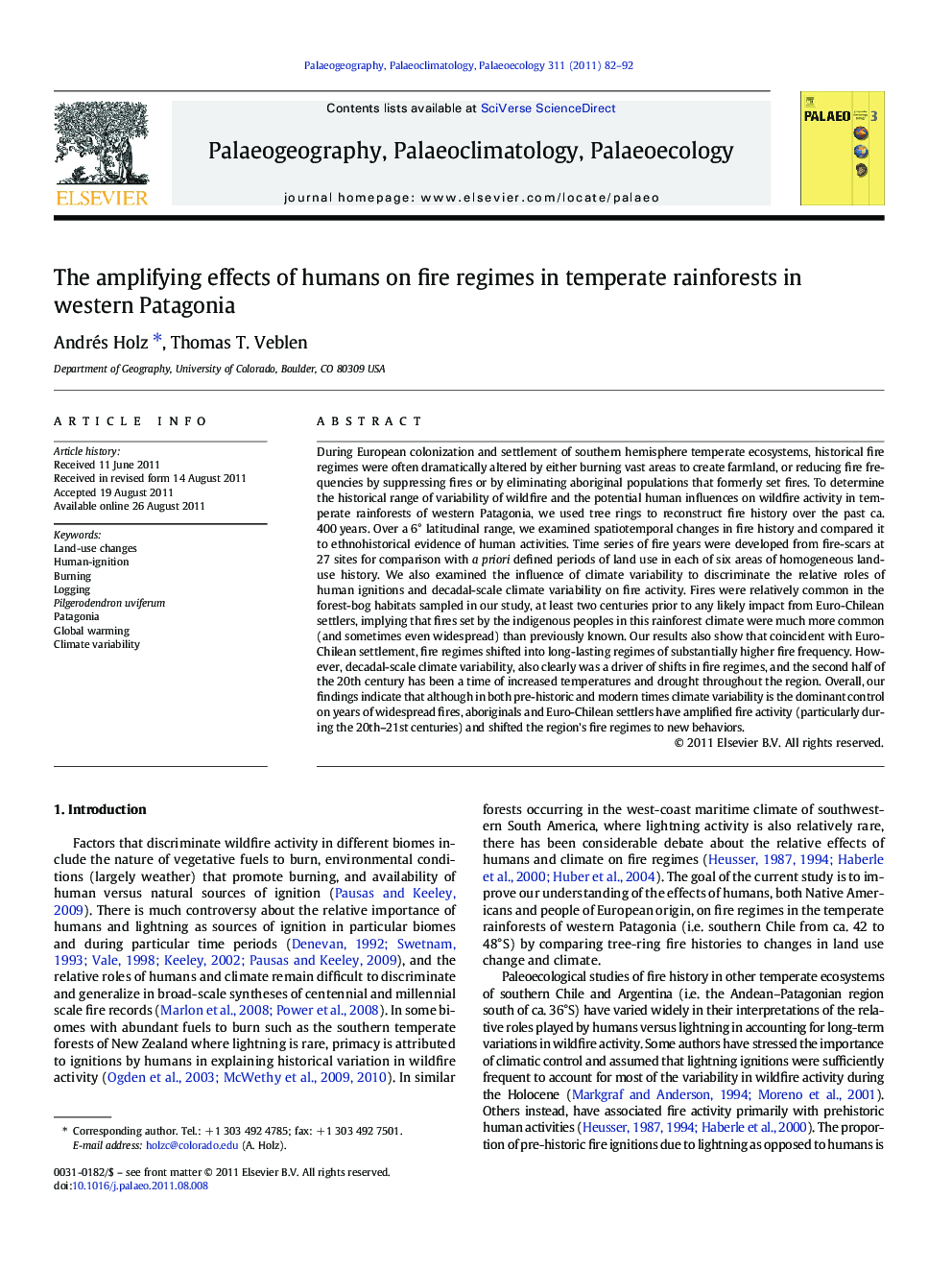| کد مقاله | کد نشریه | سال انتشار | مقاله انگلیسی | نسخه تمام متن |
|---|---|---|---|---|
| 4467084 | 1622246 | 2011 | 11 صفحه PDF | دانلود رایگان |

During European colonization and settlement of southern hemisphere temperate ecosystems, historical fire regimes were often dramatically altered by either burning vast areas to create farmland, or reducing fire frequencies by suppressing fires or by eliminating aboriginal populations that formerly set fires. To determine the historical range of variability of wildfire and the potential human influences on wildfire activity in temperate rainforests of western Patagonia, we used tree rings to reconstruct fire history over the past ca. 400 years. Over a 6° latitudinal range, we examined spatiotemporal changes in fire history and compared it to ethnohistorical evidence of human activities. Time series of fire years were developed from fire-scars at 27 sites for comparison with a priori defined periods of land use in each of six areas of homogeneous land-use history. We also examined the influence of climate variability to discriminate the relative roles of human ignitions and decadal-scale climate variability on fire activity. Fires were relatively common in the forest-bog habitats sampled in our study, at least two centuries prior to any likely impact from Euro-Chilean settlers, implying that fires set by the indigenous peoples in this rainforest climate were much more common (and sometimes even widespread) than previously known. Our results also show that coincident with Euro-Chilean settlement, fire regimes shifted into long-lasting regimes of substantially higher fire frequency. However, decadal-scale climate variability, also clearly was a driver of shifts in fire regimes, and the second half of the 20th century has been a time of increased temperatures and drought throughout the region. Overall, our findings indicate that although in both pre-historic and modern times climate variability is the dominant control on years of widespread fires, aboriginals and Euro-Chilean settlers have amplified fire activity (particularly during the 20th–21st centuries) and shifted the region's fire regimes to new behaviors.
► We examined changes in fire history and ethnohistorical evidence of human activities.
► We discriminated roles of human ignition and climate variability on fire activity.
► Fires set by indigenous peoples were much more common than previously known.
► Euro-Chilean settlers substantially increased fire frequency after their arrival.
► Although humans were an important component, climate variability was the key driver.
Journal: Palaeogeography, Palaeoclimatology, Palaeoecology - Volume 311, Issues 1–2, 15 October 2011, Pages 82–92